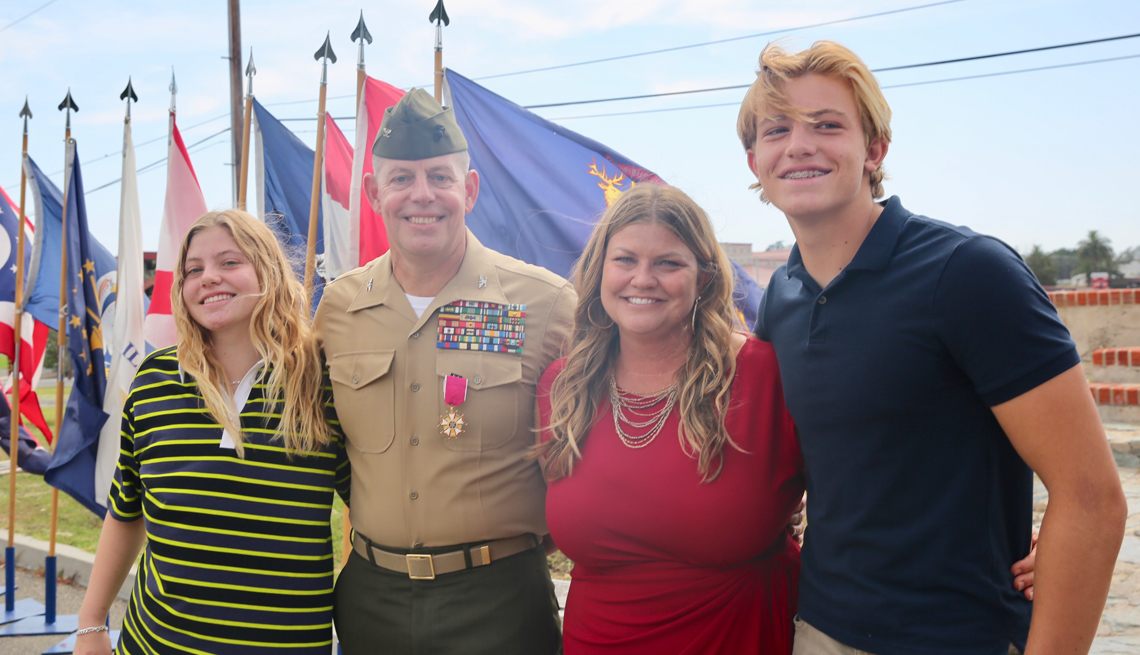
Then & now: not my father’s military — how veteran families have changed
- Select a language for the TTS:
- UK English Female
- UK English Male
- US English Female
- US English Male
- Australian Female
- Australian Male
- Language selected: (auto detect) - EN
Play all audios:

My father served 27 years in the Air Force, flying a B-52 in missions over Vietnam and, later, the SR-71 Blackbird throughout the cold war and beyond. I was just elated when an occasional
handwritten note would arrive in our mailbox when he was on TDY (temporary duty). When he was deployed we would hear nothing from him. He was completely cut off from the day-to-day
activities at home. Growing up on a military base in the 1970s, most of my mom’s friends were stay-at-home parents or had put their careers on hold to raise their children. They had weekly
bridge nights, bowling leagues and potlucks. For a kid, this sense of community was reassuring and comforting. My mom and her friends made military life look easy. They seemed content and
grateful. Life felt simple. Fast-forward to the 1990s, and I became a military spouse, two years shy of finishing my college degree. My husband, Chris, was a Marine, also destined to serve
his country in uniform for more than a quarter-century. My father had died from cancer just five months after Chris and I had started dating. Chris attended the funeral in his dress blues.
During an early deployment to the Middle East, I found out via a phone call from the commanding officer’s wife that Chris and his unit would be delayed returning home. I wrote down the
details and got out the binder for the Key Spouse Volunteer phone tree. One by one, I started making my way down the list to pass on the bad news to women spread throughout Southern
California. A few of those calls were met with answering machines, and I hated having to deliver the message on a recording tape. This was just the way of it. As the years went by, the
communication chain shifted from phone trees to emails and text threads. Answering machines were replaced by Facebook groups. Tasks we had done as wives shifted to family readiness officers,
who were active-duty military personnel. Information and access to our Marines were suddenly in the palm of our hands. Today, service members often have access to social media and
smartphones, bringing daily reminders of what they are missing. Chris believed that deployments before smartphones could be easier when dealing with feelings of homesickness. The lack of
regular contact with the home front helped him focus on the task at hand. Photo of the author’s family in 2021. Left to Right: Harper Gideons (daughter), Col. Chris Gideons (husband), Valli
Vida Gideons (self), Battle Gideons (son). Courtesy Gideons After I graduated from university, I landed a dream job writing for a local magazine. Months later, we received a new set of
orders, and I began the search for employment again. Most of my peers were in the same boat. This would be the pattern from duty station to duty station, for the next 10 years, until our
first child was born. Like my mother, I became an expert in transforming blank walls into a home.
